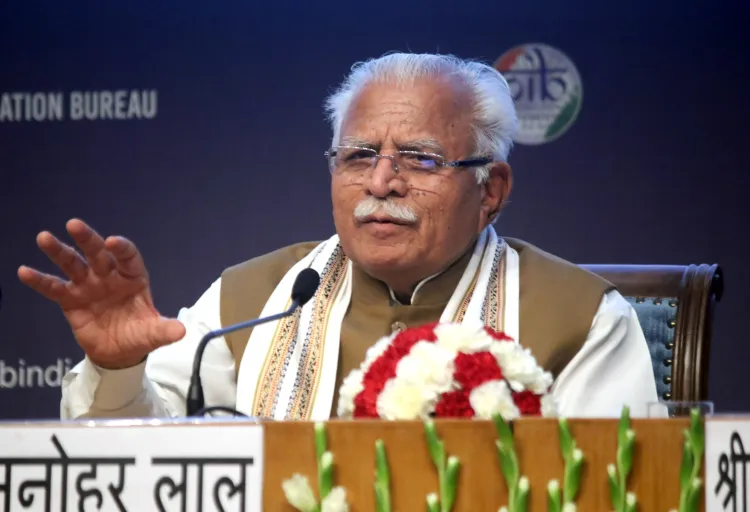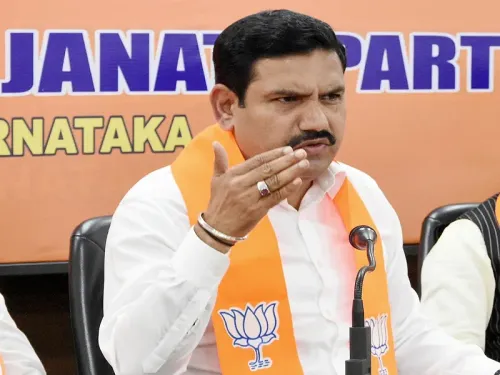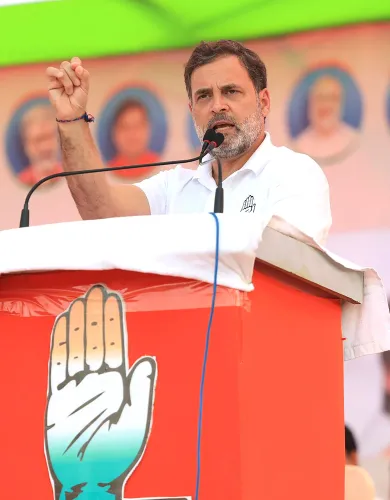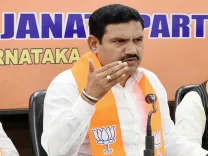How Can States Reform to Alleviate Power Utilities' Debt Burden?

Synopsis
Key Takeaways
- Urgent reforms needed to alleviate debt burden on distribution utilities.
- Collaboration between central and state governments is essential.
- Implementation of prepaid smart meters is crucial.
- Recognition of distribution utilities' debts as state liabilities.
- Importance of cost-reflective tariffs.
New Delhi, Sep 16 (NationPress) The Union Power Minister Manohar Lal on Tuesday called upon state governments to initiate essential reforms aimed at easing the debt burden on distribution utilities. This action is crucial for enhancing their efficiency and ensuring they deliver quality and reliable power supply to consumers.
While addressing a meeting with state power ministers, alongside Shripad Yesso Naik, Minister of State for Power, Manohar Lal emphasized the significance of both operational and financial health of distribution utilities in providing quality power to the public.
He pointed out that a collaborative approach involving the Central Government, state governments, and regulatory commissions is necessary to implement reforms that guarantee the power sector's viability. The minister also stressed the urgent need for the deployment of prepaid smart meters across all government establishments.
The minister urged states to recommit to the principle of “Power for all, at all times”, ensuring efficient, environmentally sustainable, and cost-effective solutions.
During the assembly, it was discussed that regulatory commissions should establish full-cost tariffs, with state governments providing subsidies when necessary. Given the severe debt situation, it was acknowledged that the debt of distribution utilities should be treated as a liability of the state governments.
Key discussion points included the responsibilities of state governments and regulators in ensuring cost-reflective tariffs, timely subsidy payments, and government department dues, accelerating smart metering projects, and leveraging data analytics to optimize power purchases and forecast demand. They also considered the framework for a new scheme proposed by the group of ministers (GoM) for the debt restructuring of distribution utilities.
The Secretary (Power) underscored the necessity of implementing reform measures to restore the financial stability of distribution utilities, ensuring that any improvements made are permanent and that the issue of debt trap does not recur. He noted that the GoM has been formed with the goal of identifying crucial reform measures.
The Joint Secretary (Distribution) from the Ministry of Power outlined the primary reasons behind the ongoing unviability of distribution utilities, which results in inadequate service delivery for consumers. He elaborated that the high cross-subsidies imposed have led to increased manufacturing costs, negatively impacting their competitiveness. The current losses within distribution companies have rendered the sector less appealing for private investment.
The Additional Secretary from the Ministry of Power also presented the proposed Electricity (Amendment) Bill, which aims to create a supportive environment for enhancing the financial viability of utilities, improving ease of living and business operations, promoting energy transitions, fortifying the regulatory framework, and optimizing distribution network usage, as per ministry reports.









